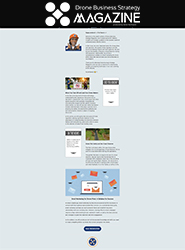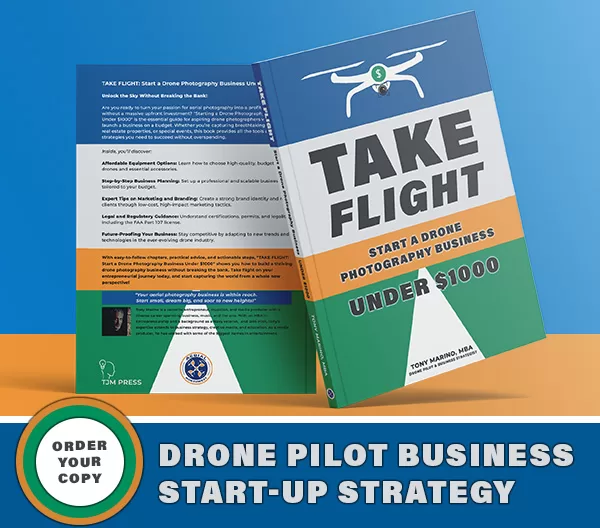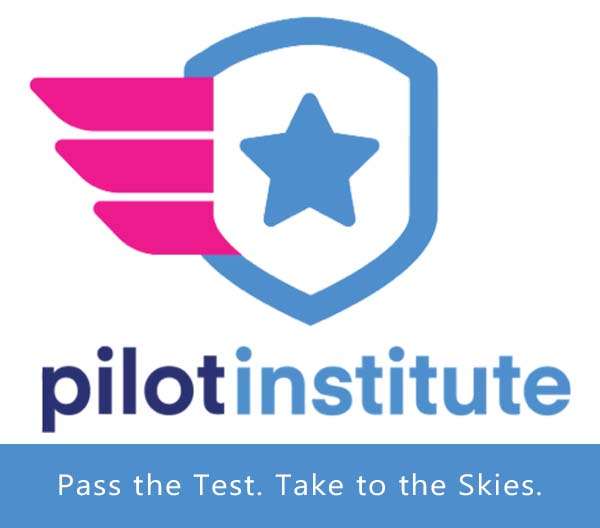
Introduction
Drones have undoubtedly revolutionized various industries, from aerial photography and surveying to delivery services and emergency response. However, with any emerging technology, there comes a need to foster understanding and trust between those who operate it and the communities they serve. As drone pilots, it is essential to recognize that many members of the public are still unfamiliar with these magnificent flying machines and may have concerns or misconceptions about their use.
In this article, we will explore effective strategies that drone pilots can employ to build positive relationships with their non-pilot neighbors, paving the way for a harmonious coexistence and unlocking the full potential of drones for the greater good.
Section 1: Education and Awareness
To bridge the knowledge gap and dispel apprehensions, education and awareness initiatives are crucial. Drone pilots should take the lead in organizing community events, workshops, or informational sessions. These gatherings provide an opportunity to showcase the technology, explain its various applications, and address any safety concerns. Demonstrating responsible drone operation and highlighting the benefits of drone technology in areas like search and rescue, environmental monitoring, and infrastructure inspection can go a long way in building trust.
Community members may have reservations about drones due to media portrayals or misunderstandings about their capabilities and intentions. By engaging directly with the public and providing accurate information, pilots can replace fear with knowledge. Moreover, fostering a sense of awe and fascination about drones’ potential positive impact can garner support from community members who may otherwise be skeptical.
Section 2: Open Communication Channels
Transparent and open communication is the foundation of any successful relationship. Drone pilots should actively seek out opportunities to engage with their communities. Establishing communication channels such as social media groups, newsletters, or community forums dedicated to drones can serve as valuable platforms for sharing updates, addressing queries, and receiving feedback. Being receptive to community input and concerns will demonstrate a genuine commitment to being responsible and accountable operators.
In times of uncertainty or change, misinformation can easily spread, leading to heightened anxieties about drones. By maintaining clear and accessible communication channels, pilots can swiftly address any misconceptions that may arise and provide reassurance about their intentions. Moreover, soliciting feedback from the community can help pilots adapt their practices and operations to align with community needs and expectations.
Section 3: Collaborative Projects
Incorporating the community into drone-related projects can create a sense of ownership and understanding. Drone pilots can collaborate with local schools, environmental organizations, or public service agencies to conduct educational or community-driven initiatives. For instance, involving students in drone workshops or using drones for environmental surveys can foster a positive perception of drone technology as a tool for public benefit.
Collaborative projects not only offer opportunities for skill-building and knowledge transfer but also allow community members to witness firsthand the responsible and meaningful use of drones. Such experiences can dispel any remaining doubts or fears and showcase the technology’s potential in addressing real-world challenges.
Section 4: Respect Privacy and Boundaries
Respecting privacy and adhering to regulations is paramount to gain public trust. Drone pilots must be well-versed in the laws and regulations surrounding drone operation in their respective regions and strictly follow these guidelines. Additionally, being mindful of individuals’ privacy and avoiding sensitive areas without proper authorization will help alleviate concerns about potential misuse of drones.
Privacy is a sensitive issue for many, and the presence of drones can be seen as invasive if not operated responsibly. By prioritizing privacy and ensuring compliance with regulations, drone pilots can demonstrate their commitment to being respectful members of the community. Proactively addressing privacy concerns and being receptive to feedback on this matter will further strengthen the bond between pilots and the public.
Section 5: Moves to Make: Forging Positive Relationships Between Drone Pilots and Communities
- Host Educational Events: Organizing workshops, community gatherings, or informational sessions can help bridge the knowledge gap between drone pilots and the public. These events serve as opportunities to showcase the various applications of drone technology and address any safety concerns that community members may have. By educating the public about responsible drone operation and the benefits drones can bring, pilots can build trust and understanding.
- Open Communication Channels: Establishing communication platforms such as social media groups, newsletters, or community forums dedicated to drones allows drone pilots to stay connected with the public. These channels provide a space for pilots to share updates about their activities, answer questions, and receive feedback from community members. By being responsive and receptive to community input, pilots can demonstrate their commitment to transparency and accountability.
- Collaborate on Projects: Working together with local organizations, schools, or public service agencies on drone-related initiatives fosters a sense of community involvement and ownership. By including community members in such projects, pilots can showcase responsible drone use in action and the technology’s positive impact. This involvement helps dispel any remaining doubts or fears about drones and builds support within the community.
- Respect Privacy & Follow Regulations: Respecting privacy and adhering to drone regulations is crucial for gaining public trust. Pilots must be well-informed about the laws and regulations governing drone operation in their respective regions. By demonstrating a commitment to responsible and legal drone use, pilots can ease concerns about potential misuse of drones and ensure they operate in a manner that respects the privacy of individuals.
- Be Transparent & Accountable: Maintaining clear and open communication with the community is vital. Drone pilots should be approachable and willing to address any misconceptions or concerns that arise. By promptly and openly addressing issues, pilots can prevent the spread of misinformation and build stronger bonds with their non-pilot neighbors.
- Demonstrate Responsible Drone Use: Actively showcasing responsible drone operation and its benefits in real-world scenarios can go a long way in building public trust. Whether it’s using drones for search and rescue missions, environmental monitoring, or infrastructure inspection, demonstrating the positive impact of drone technology reinforces the notion that drones can be valuable tools for the greater good.
By following these things to do, drone pilots can proactively foster positive relationships with their communities. Building trust, being transparent, and involving the public in drone-related activities can pave the way for a harmonious coexistence between drones and their non-pilot neighbors. This collaboration and understanding will lead to the responsible and ethical use of drone technology for the benefit of society as a whole.
Conclusion: The Takeaway
As drone pilots, we have the power to shape public perception and foster a positive relationship between our incredible flying machines and the communities we serve. By proactively engaging in educational efforts, maintaining open lines of communication, and involving the community in drone-related projects, we can build trust and understanding.
Respecting privacy and adhering to regulations are non-negotiables that underscore our commitment to responsible drone operation. Let us embrace our role as ambassadors of this transformative technology, and together, we can unlock its full potential for the betterment of society. Through collaboration, transparency, and empathy, we can create a future where drones and communities thrive in harmony.
By employing these strategies, drone pilots can bridge the gap between themselves and their non-pilot neighbors, fostering an environment of trust, curiosity, and support. Ultimately, this partnership between pilots and the public will ensure that drones continue to be utilized responsibly, ethically, and to their full potential for the greater benefit of society. Let us embark on this journey together, as united efforts will elevate the relationship between drone pilots and their communities to new heights.
Be smart, safe, and forever fly!
If you have any questions, let us know! If you’d like to hire us, you can get more information here.
Written by: Tony Marino, MBA – FAA Certified Part 107 Commercial Drone Pilot and Chief Business Strategist at Aerial Northwest
Resources
- Drones (FAA): https://www.faa.gov/uas
- Drone Advocacy Alliance
Disclaimer: The information provided in this blog post is for general informational purposes only and should not be construed as legal advice.

DRONE BUSINESS STRATEGY MAGAZINE
A free digital publication made exclusively for all small business drone pilots to them help start-up, become profitable while sustaining a competitive advantage within the drone service industry sector they opt to serve.
“If you love to fly, we’d love to have you come aboard!”
We share your information with no one. Our Privacy Policy.









Leave a Reply
Your email is always safe with us.